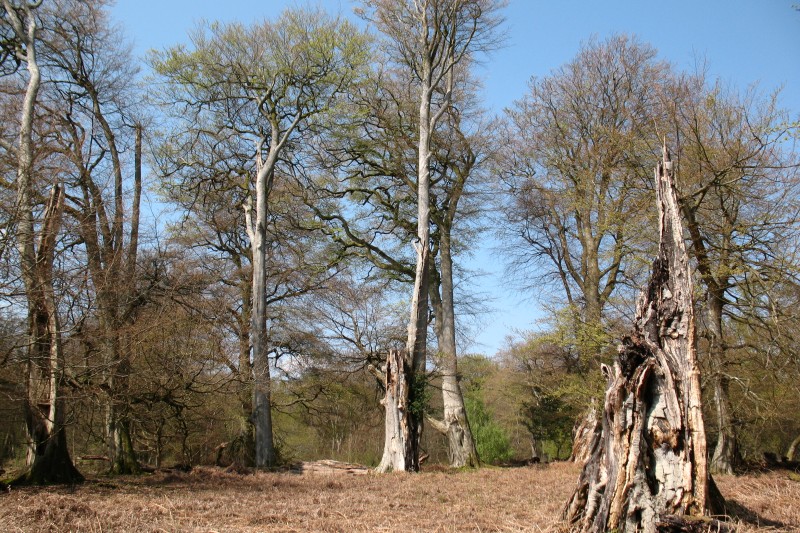
The paper was co-authored by BU’s Professor Adrian Newton, Director of Conservation Ecology at Bournemouth University and Co-chair of the IUCN/SSC Global Tree Specialist Group (GTSG) in collaboration with other leading scientists and issues a “warning to humanity” that billions of people could lose their income, jobs, and livelihoods, if the widespread loss of trees continues.
The paper outlines the importance of trees and how they play a vital role in many of the world’s ecosystems by supporting other plants, fungi and animal species. Half of the world’s known animal and plant species rely on trees for their habitat, while forests provide 50% of the world’s carbon storage and ¾ of the world’s accessible freshwater.
The research has also shown the economic benefit that trees provide for people, contributing to food, energy, health, housing, income and nutrition. Professor Adrian Newton said: “Our message for humanity is to remember how trees enrich and support our lives, as they have throughout human history. Yet we need to acknowledge that these values are at risk if we fail to consider the impacts of our actions, and to change our collective behaviour in relation to trees. Although there is still much to learn about the biology, ecology and wonder of trees, we know how to conserve them. We also know that now is the time to act.”
Scientists warn of a huge economic impact on the $1.3 trillion to the global economy that the world’s forests currently provide. As well as timber, forests provide non-timber products such as fruit, nuts, and medicines that contribute to $88 billion in global trade, providing 20-25% of household income in developing countries.
Malin Rivers, lead author of the paper and Head of Conservation Prioritisation at the Botanic Gardens Conservation International (BGCI) said: “Last year we published the State of the World’s Trees report, which showed that a third of species are at risk of extinction. In this new paper, we show the wide-ranging impact these tree extinctions may have on other species, on the ecosystems and for humanity. A strong and urgent response is required, both to prevent further tree species extinctions and restore the damaged ecosystems they form a part of.”
The work also shows the importance of protecting and preserving a sustainable environment and how some tree species are irreplaceable, in that they have distinct traits that provide unique environmental benefits that cannot be replicated by other species. This emphasises the importance of specifically protecting threatened trees. The extinction of a single tree species can alter an ecosystem substantially, causing a domino effect in the form of ‘extinction cascades’, which can cause the rapid collapse of ecosystem functions and services.
The paper, published on 1st September 2022 by the BGCI and the GTSG of the International Union for Conservation of Nature’s Species Survival Commission (IUCN/SSC) is exactly one year on from the landmark State of the World’s Trees report that revealed a third (17, 510) of tree species are facing extinction. The joint warning from BGCI and GTSG has been signed by 45 scientists from more than 20 countries.
Call to action
The published paper, which comes months ahead of the Kunming Biodiversity Conference 2022, where leaders will meet to discuss biodiversity decline, aims to raise awareness of the tree extinction crisis and to provide a catalyst for policymakers and conservation experts to take action. Seven urgent actions for policymakers and experts to avert the ecological, cultural and socio-economic catastrophe caused by widespread extinction of tree species have been put forward:
- Recognise the importance of tree species and their unique functions and ecological roles.
- Conserve and restore natural tree populations by strengthening local knowledge of trees that are threatened and monitoring populations of threatened species, increasing enforcement where necessary.
- Address direct threats to tree species taking clear action, supported by legal measures where necessary, such as addressing illegal logging.
- Prioritise conservation action for threatened tree species, with species being considered as conservation flagships to prioritise planning and action for the most threatened trees.
- Strengthen the role of trees in environmental and climate policy, by making action in support of tree conservation mandated by local and international policy and legislation.
- Strengthen the role of trees in sustainable development, recognising the contribution of trees in alleviating poverty and ensuring the value of trees to people is suitably reflected in policies and actions, such as the UN Sustainable Development Goals.
- Act now for trees - we all need to take action for the world’s tree species both collectively and individually. A wider partnership that includes local communities, government agencies, forestry organisations, business communities, conservation NGOs, botanic gardens, universities, and all other stakeholders that depend on trees must be formed, to work collectively to prevent a tree extinction crisis.
To read the entire paper please visit the New Phytologist Foundation’s online journal Plants People Planet.
For further information about the ecology and wildlife conservation courses please visit the BU website.



